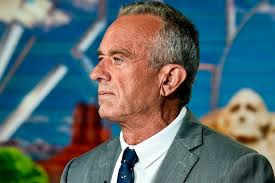
Breaking News
 Back to cash: life without money in your pocket is not the utopia Sweden hoped
Back to cash: life without money in your pocket is not the utopia Sweden hoped
 How people spent their time from 1930 - 2024
How people spent their time from 1930 - 2024
 Superwood is Here! This Amazing New Material Could Change The World!
Superwood is Here! This Amazing New Material Could Change The World!
 If only we'd built those offshore wind turbines, eaten more cricket-burgers...
If only we'd built those offshore wind turbines, eaten more cricket-burgers...
Top Tech News
 New AI data centers will use the same electricity as 2 million homes
New AI data centers will use the same electricity as 2 million homes
 Is All of This Self-Monitoring Making Us Paranoid?
Is All of This Self-Monitoring Making Us Paranoid?
 Cavorite X7 makes history with first fan-in-wing transition flight
Cavorite X7 makes history with first fan-in-wing transition flight
 Laser-powered fusion experiment more than doubles its power output
Laser-powered fusion experiment more than doubles its power output
 Watch: Jetson's One Aircraft Just Competed in the First eVTOL Race
Watch: Jetson's One Aircraft Just Competed in the First eVTOL Race
 Cab-less truck glider leaps autonomously between road and rail
Cab-less truck glider leaps autonomously between road and rail
 Can Tesla DOJO Chips Pass Nvidia GPUs?
Can Tesla DOJO Chips Pass Nvidia GPUs?
 Iron-fortified lumber could be a greener alternative to steel beams
Iron-fortified lumber could be a greener alternative to steel beams
 One man, 856 venom hits, and the path to a universal snakebite cure
One man, 856 venom hits, and the path to a universal snakebite cure
 Dr. McCullough reveals cancer-fighting drug Big Pharma hopes you never hear about…
Dr. McCullough reveals cancer-fighting drug Big Pharma hopes you never hear about…
RFK Urges Other Countries to Join the U.S. in Leaving the WHO:

In an unprecedented act of political courage, Robert F. Kennedy Jr., current U.S. Secretary of Health and Human Services, has openly challenged the World Health Organization (WHO), describing it as "dying" and accusing it of being riddled with corruption and influenced by political interests—particularly those of China.
In a recorded message delivered during the World Health Assembly in Geneva, Kennedy called on other countries to follow the United States' lead and withdraw from the organization. According to Kennedy, the WHO mishandled the COVID-19 pandemic by concealing information about human transmission of the virus and promoting false theories about its origin.
He also criticized the new pandemic treaty adopted by the WHO, calling it a perpetuation of systemic dysfunction. In response, the Trump administration has begun forming a new global health alliance with countries such as Argentina, Italy, and Israel.
RFK Jr.'s Well-Grounded Critique of the WHO.
Kennedy's criticisms of the WHO are not baseless. Since its founding, Children's Health Defense (CHD)—the organization he led before taking public office—has questioned vaccine safety and denounced what it sees as collusion between governments and the pharmaceutical industry.
Kennedy has claimed that mercury in vaccines, specifically thimerosal, is responsible for neurological disorders in children, despite the fact that scientific studies have refuted this connection.
Moreover, his views on immunization have sparked controversy. In a Senate hearing, he suggested that Black people may have stronger immune systems than white people, which could justify a different vaccination schedule. This claim has been labeled "unscientific and frightening" by health experts.
International Response and Public Health Implications.
Robert F. Kennedy Jr.'s stance has generated diverse reactions internationally, particularly among established entities such as the World Health Organization (WHO) and the Centers for Disease Control and Prevention (CDC).
These institutions have consistently defended the safety and effectiveness of vaccines, dismissing the concerns raised by Kennedy without allowing space for the pluralistic scientific debate that should characterize any democratic public health policy.
Despite the consensus promoted by these bodies, a growing number of doctors, scientists, and citizens see it as both legitimate and necessary to question the financial and political ties influencing the agenda of institutions like the WHO.



